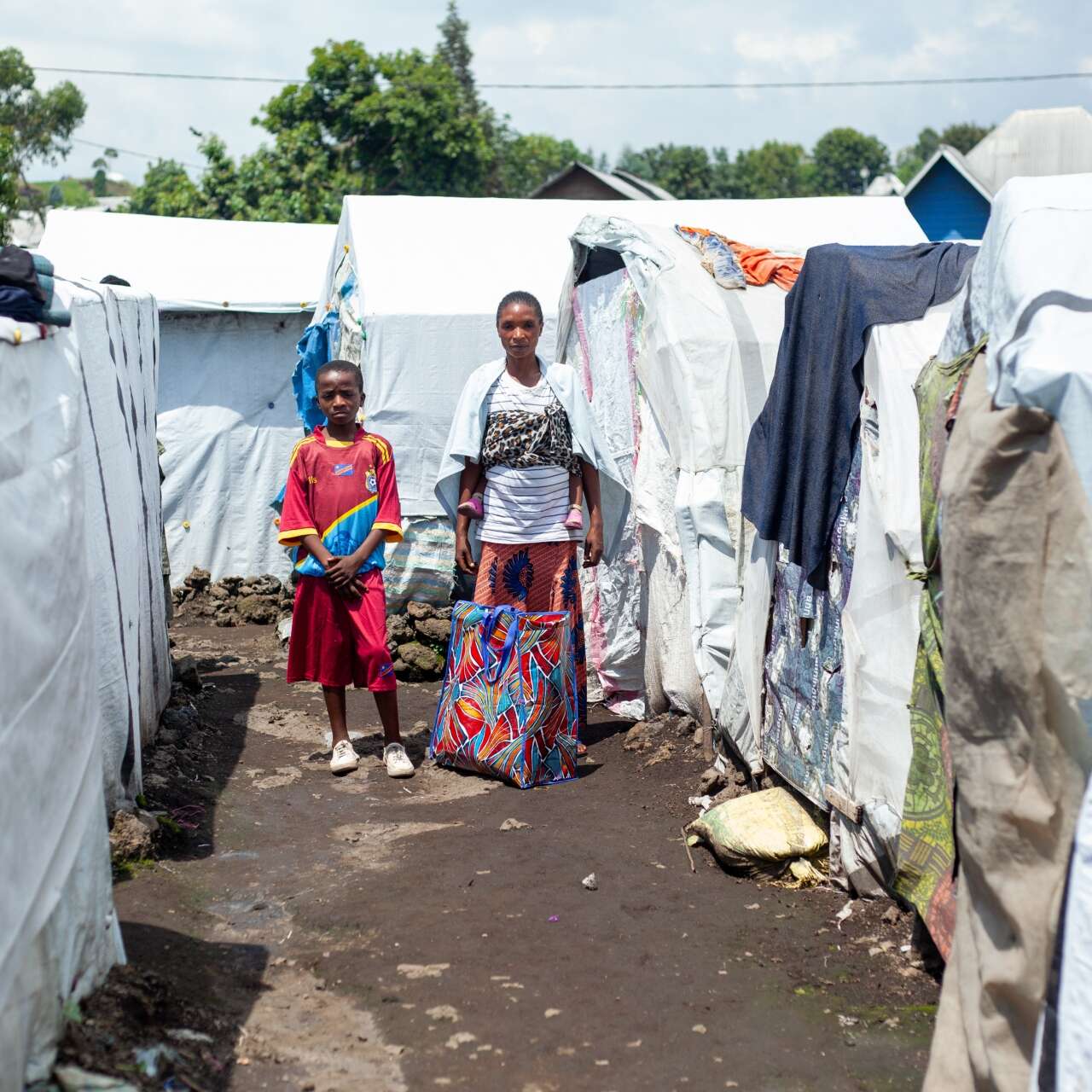
Conflict in the DRC: What you need to know about the crisis
Millions displaced as resurgence in fighting ignites a humanitarian catastrophe

Millions displaced as resurgence in fighting ignites a humanitarian catastrophe
The Democratic Republic of Congo (DRC) is facing a rapidly escalating humanitarian emergency, with civilians paying the price of escalating conflict. As violence surges in Eastern DRC, displacement is soaring, crimes against humanity are being documented, and the nation’s healthcare system is overwhelmed by disease and violence.
The International Rescue Committee (IRC) is on the ground in the DRC, delivering emergency support to affected communities. We call for all parties to the conflict to cease hostilities and immediately allow for further scale-up of assistance.
The DRC is facing one of the world’s most severe humanitarian crises. Decades of conflict have fueled widespread violence, mass displacement and extreme human suffering. Most recently, escalations in conflict between the DRC and armed groups have plunged the country’s eastern region into chaos, with millions of civilians caught in the crossfire. Reports of war crimes, crimes against humanity, sexual violence and human rights violations continue to mount.
As fighting escalates millions have been left without food, clean water or medical care. Overwhelmed hospitals are struggling to cope, while the risk of disease outbreaks, including cholera, grows daily.
Urgent humanitarian assistance is needed to prevent further loss of life.

Over 7 million people are displaced across the DRC, including 2.8 million in North Kivu—a province in eastern DRC where much of the recent fighting has been concentrated. Nearly 780,000 people were forced to flee their homes between November 2024 and January 2025 alone.
Displaced people from South Kivu, DRC are fleeing to neighboring Burundi, which does not have the capacity or resources needed to meet the immediate needs of arriving refugees.
Displaced families in the DRC are seeking refuge in overcrowded camps that lack adequate food, health services, and water and sanitation services. Meanwhile, ongoing violence has forced people infected with diseases like Mpox to flee treatment centers, increasing the risk of deadly outbreaks.

Communities in eastern DRC are enduring horrific levels of violence. Shells have struck hospitals in Goma, DRC, killing and injuring civilians, including newborns and pregnant women. Armed groups continue to expand their control, leaving towns and villages devastated. In just five days, from January 26 to 30, over 700 people were killed and 2,800 injured.
The conflict has also triggered a surge in sexual violence and rape, putting women and girls at extreme risk. Protection services are severely limited, and survivors have little access to medical and psychological support.

Overcrowded displacement camps, limited access to clean water and collapsing health care services have created a public health emergency in the DRC. Cholera, measles and malaria are spreading at an alarming rate, threatening thousands of lives.
“Hospitals, already overwhelmed with thousands of wounded civilians, are unable to cope with the growing medical emergency,” explains senior emergency coordinator for the IRC in the DRC, Freddy Malembe.
“The potential for mass disease outbreaks is escalating daily, exacerbating an already dire situation. Without immediate intervention, we risk a major cholera outbreak that could claim thousands of lives.”

The IRC has been delivering critical aid to crisis-affected communities in the DRC for over three decades. In response to the current humanitarian crisis, the IRC is scaling up our emergency response in collaboration with our local and international partners.
We are delivering critical services across the health, protection and WASH sectors throughout the country.
Editor’s note: Due to security concerns, we have suspended our activities in the Kahele territory (Minova, Shanje, and Numbi) and Goma. The IRC is currently assessing the possibility of relocating operations to safer areas. Meanwhile, population movements persist from Kahele to Bukavu, and from Bukavu to Bujumbura or Kalemie (Tanganyika Province, DRC).
Learn more about our work in the DRC.
Donate: Financial contributions are key for trusted organizations like the IRC, which deliver humanitarian aid to crisis-stricken communities around the world. Your donation can help people survive, recover and rebuild their lives.
Get connected: Follow our Instagram, LinkedIn, Facebook and X accounts.
Stay informed: Learn more about the world’s most pressing crises and what the IRC is doing to help.
*Last name omitted for safety